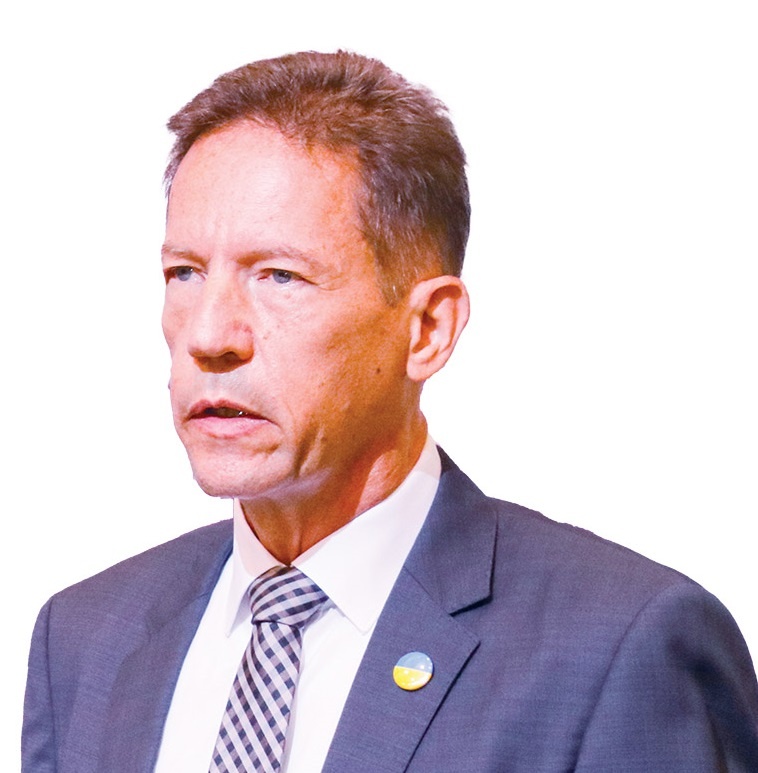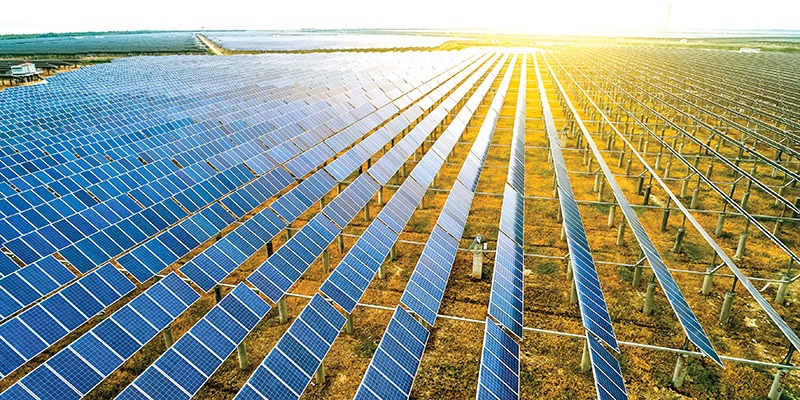Meeting ambitious climate objectives
 |
| Weert Börner-Chargé d’Affaires a.i. German Embassy to Vietnam |
The National Climate Change Strategy (NCCS) to 2050 is the first policy in Vietnam to outline a pathway to how climate neutrality can be achieved across sectors by the middle of the century. On behalf of the German government, I want to express my acknowledgement of this huge engagement and commitment and be assured of Germany’s continuous support when it comes to translating this strategy into action.
In particular, we appreciate the strong wording that was used when referring to climate change as the biggest challenge for humanity and calling for its highest priority in all development decisions, leaving no doubt there is nothing more important than tackling the climate emergency. We also welcome the strong emphasis placed on the topic of adaptation.
The new NCCS shows that the objective of climate neutrality in Vietnam is highly ambitious and challenging, but feasible. It makes an extremely important contribution to the national net-zero debate that will need to continue after the approval of this 2022 strategy version by the prime minister. In itself, it will also be an important contribution to the ongoing international discussion.
The strategy draft offers three options – different pathways that suggest different technologies and result in different shares of fossil fuels in the energy mix to 2050 and beyond.
Option one forecasts a share of renewables of 73 per cent in Vietnam’s electricity mix by 2050. This scenario is less costly and less dependent on technologies that are not mature or that are highly controversial, both in this country and internationally.
While this NCCS provides the basic orientation needed, it does not say much yet about how to achieve the envisaged target by 2050.
We strongly call upon the leadership of Vietnam to initiate the required paradigm shift, which needs to start with a clear and immediate turn-away from fossil fuels. Fossil fuel power plants have a lifespan of 40 years or more. This means that already, any investment in new fossil structures will become a stranded asset in light of Vietnam’s net-zero target.
The right policies must be put in place now, within a forward-looking approach to reforming the growth model that avoids lock-in effects, subsequent destruction of capital, and job losses.
 |
The power sector is a key enabler of this paradigm shift. From now on, investment in renewable energy and energy efficiency must become the rule, and investment in fossil structures is the exception, with clearly defined timelines for an exit. This requires urgently removing the barriers to absorbing more low-carbon investment into renewables in Vietnam.
In addition, the absorption capacity of the grid regarding high shares of renewables needs to be addressed, along with enhanced storage measures. Germany continuously supports an energy transition in Vietnam that is just, secure, clean, and affordable.
But we must also not forget about the other sectors that have huge growth projections and require substantial decarbonisation: transport, construction, cooling, and industry. We appreciate the impulses that are provided by the NCCS in this regard, such as the electrification of the transport sector or the decarbonisation of the industry by means of green hydrogen.
Yet, we call for greater emphasis on demand reduction strategies: reduction of demand for energy/electricity, but also of materials, goods, products, and services. Various reduction measures can be implemented at low cost, depending on the policy instrument used – for example, a ban on single-use plastics.
Given the high investment needed to finance Vietnam’s ambition, it is also important for both government and international partners to understand which part of the net-zero target is conditional upon international support, and which part would be available for international carbon markets, including REDD+ and other forestry mechanisms.
The strengthened Nationally Determined Contribution that is expected by the end of this year must bring clarity in this regard, as the international parties interested in engaging with Vietnam on international climate finance, respectively, carbon markets would have requirements in terms of transparency and robustness in the estimated reductions and costs, as well as the ambitious levels of the measures.
On this avenue to climate neutrality, it is crucial to build on the knowledge and experience of various stakeholders. We strongly encourage you to set up an inclusive and participatory process toward net-zero emissions by 2050 and to listen to the voices of both national and international experts.
The German government has been supporting the Vietnamese government for more than 10 years on the path towards ambitious climate action and a national energy transition. Our projects have supported and are supporting the rapid expansion of renewable energies, increased deployment of energy efficiency potential, the low-carbon transformation of different sectors, the greening of the financial system, and increased resilience in the Mekong Delta, and more. We are very eager to keep working together to establish Vietnam’s net-zero transition.
| The Vietnamese government over the next months will adopt Vietnam’s National Climate Change Strategy until 2050. Under the draft strategy currently under discussion, climate change is considered an irreversible trend and the biggest challenge for mankind. Climate change adaptation and net-zero emission target are opportunities for sustainable development, the highest priority in all development decisions, the highest ethical standard of all levels, sectors, businesses and citizens. Climate change response is carried out on the principle of justice and equality, with a global and universal approach; based on synchronous institutions, effective and efficient policies and laws, science, technology and innovation, internal strength and international cooperation. Climate change response is the responsibility of the whole political system and society. The state has an enabling and leading role; communities and businesses have a central role as implementing agents; continuous efforts, consistency and unity in perception and action are needed. It is necessary to implement priority solutions to reduce vulnerability and increase resilience to climate change impacts with the highest priority for safety and livelihoods of people in areas with high risks; while developing infrastructure for climate change response and energy transition based on potentials and advantages of regions. It is also needed to focus resources on climate change response, develop financial mechanisms and the carbon market, promote an investment shift to low-emission economic development, and promote the state’s resources as a leverage to attract investment from organisations, enterprises, individuals and international community on the basis of equality cooperation and mutual benefits. |
What the stars mean:
★ Poor ★ ★ Promising ★★★ Good ★★★★ Very good ★★★★★ Exceptional
Related Contents
Latest News
More News
- Trung Nam-Sideros River consortium wins bid for LNG venture (January 30, 2026 | 11:16)
- Vietnam moves towards market-based fuel management with E10 rollout (January 30, 2026 | 11:10)
- Envision Energy, REE Group partner on 128MW wind projects (January 30, 2026 | 10:58)
- Vingroup consults on carbon credits for electric vehicle charging network (January 28, 2026 | 11:04)
- Bac Ai Pumped Storage Hydropower Plant to enter peak construction phase (January 27, 2026 | 08:00)
- ASEAN could scale up sustainable aviation fuel by 2050 (January 24, 2026 | 10:19)
- 64,000 hectares of sea allocated for offshore wind surveys (January 22, 2026 | 20:23)
- EVN secures financing for Quang Trach II LNG power plant (January 17, 2026 | 15:55)
- PC1 teams up with DENZAI on regional wind projects (January 16, 2026 | 21:18)
- Innovation and ESG practices drive green transition in the digital era (January 16, 2026 | 16:51)

 Tag:
Tag:




















 Mobile Version
Mobile Version